Oscar Predictions: 2011, PLUS Hall Pass, I Am Number Four
 Well the Oscars are back again, complete with the requisite back-patting — by members, for members – and a self-congratulatory, highly ranked and stratified awards system. But, as a movie reviewer, I’d be denying reality to pretend these awards weren’t my bread-and-butter.
Well the Oscars are back again, complete with the requisite back-patting — by members, for members – and a self-congratulatory, highly ranked and stratified awards system. But, as a movie reviewer, I’d be denying reality to pretend these awards weren’t my bread-and-butter.
So I’m going to try to give a very brief summary of each of the Best Picture competitors, and which ones I think will win. (I’m also reviewing two new movies – a comedy, and a science fiction thriller.)
Here are the ten contenders, in alphabetical order:
 “127 Hours” is a true story about a guy, a mountain climber/hiker, who is trapped in the middle of the desert when one of his arms is pinned by a fallen boulder.
“127 Hours” is a true story about a guy, a mountain climber/hiker, who is trapped in the middle of the desert when one of his arms is pinned by a fallen boulder.
“Black Swan” is a psychological drama about a young ballet diva (who still lives with her stage-mother) who, when she tries to get the lead role in Swan Lake, is forced to choose between her cruel director, her sex and drug-addled dance-rival, her driven but coddling mother, and her own internal psychoses.
stage-mother) who, when she tries to get the lead role in Swan Lake, is forced to choose between her cruel director, her sex and drug-addled dance-rival, her driven but coddling mother, and her own internal psychoses.
 “The Fighter” is a biopic, a true story about a working class, New England Irish boxer, who, trained by his crack-head brother – a former fighter — and managed by his mother, might have to abandon his family if he wants to reach the top.
“The Fighter” is a biopic, a true story about a working class, New England Irish boxer, who, trained by his crack-head brother – a former fighter — and managed by his mother, might have to abandon his family if he wants to reach the top.
“Inception” is a special-effects-centred action/thriller about a team of mercenary spies who go on a trip into a billionaire’s dreams in order to get him to change his mind.
“The Kids Are All Right” is a light comedy about a happy California family – two moms, two teenaged kids – whose lives are disrupted when their daughter brings her formerly  anonymous sperm-doner dad into their home.
anonymous sperm-doner dad into their home.
“The King’s Speech” is the true, feel-good story about how King George VI tackled his embarrassing stammer — with the help of a self-taught Australian speech therapist — just as Britain was facing German bombing.
“The Social Network” is a dark biopic about a nerdish, misanthropic Harvard student who founded  Facebook, and the trial by fire of him his rivals and his friends.
Facebook, and the trial by fire of him his rivals and his friends.
“Toy Story 3” is a moving and scary animated version of “Paradise Lost” enacted by a group of plastic children’s toys who must escape from a hell-hole day-care centre, or face slavery or Toy Death.
“True Grit” is a western drama about a tough and witty 14-year-old girl who  hires a drunken gunman to help her capture the outlaws who killed her father.
hires a drunken gunman to help her capture the outlaws who killed her father.
“Winter’s Bone” is a dramatic thriller about a young woman in the Ozarks who must journey through a swamp of her sketchy extended family to find her meth-head father before his trial or else lose her family homestead.
My own opinion is more or less in line with the ten movies chosen this year, which match four of my own top-ten choices: Winter’s Bone, True Grit, Kids are All Right, and Black Swan. I also really enjoyed Toy Story 3, 127 Hours, and The Fighter, when they came out. Ironically, the two movies with most chance of sweeping the Oscars — The King’s Speech and The Social Network — are two of the three nominees I’m least enthusiastic about. While I found The King’s Speech entertaining, it was also annoying (with its frequent use of a wide angle lens) and pandering, and didn’t do much for me; and The Social Network, while very well-written and acted, had no character I could sympathize with, so it left me feeling cold. Finally, Inception was a stupid movie with amazing special effects – nothing more to say about that.
It’s a real toss-up, with great films and performances competing in each category, but here are my choices of most likely winners: (The correct answers are in caps.)
Best Picture: The Social Network X THE KING’S SPEECH
Best Actor: Jesse Eisenberg X COLIN FIRTH
Best Supporting Actor: Christian Bale
Best Actress: Jennifer Lawrence X NATALIE PORTMAN
Best Supporting Actress: Hailee Steinfeld X MELISSA LEO
Best Original Script: The Fighter X THE KING’S SPEECH
Best Adapted Script: The Social Network
Best Animated Feature: Toy Story 3
Best Director: Darren Aranofsky X TOM HOOPER
Best Documentary: Gasland X INSIDE JOB
Best Foreign Language Film: Incendies X IN A BETTER WORLD
But on most of these, your guess is as good as mine. My main prediction is that no movie will sweep the awards; they will be spread among many different pictures.
OK, enough of the big-time movies. Here are two cheesy-popcorn multiplex selections.
Dir: Bobby and Peter Farrelly
Real estate agent Rick and insurance agent Fred (Owen Wilson and Jason Sudeikis) are middle-aged, middle-class best friends who drive mid-sized cars in a medium sized suburban town. But when their wives Maggie and Grace (Jenna Fischer and Christina Applegate) overhear them talking about hypothetical sexcapades with women outside of their marriage, they worry that their marriages are threatened. So they decide to defuse the issue by going away to Cape Cod for a week, while their husbands are granted “hall passes” that say they can go wherever they want and do whatever they want without retribution. Rick has a crush on an Aussie barrista, and Fred just wants to have fun. And their wives are looking lustily at the local baseball team.
The men are at a loss – should they try to pick up girls at the Olive Garden or Boston Pizza? Meanwhile, they’re regaled with images of dozens of nubile young women in short-shorts playing Frisbee, and virtually throwing themselves at him, but his marital vows and sense of guilt keep holding him back. The running joke is they may talk a lot, but their imaginations would limit them to half-baked, suburban fantasies.
This is a typical Farrelly brothers movie, complete with their usual old-school morality – those who cheat get physically punished; those who remain loyal stay out of trouble. It’s also full of gratuitous bodily excrement jokes, breast jokes, penis jokes, the pot jokes, the racial stereotypes… but above all, a scathing take on the mediocrity of middle-aged white guys. Ouch! He’s really cruel… but the unwritten rule is directors are allowed to be meanest to their own group.
who remain loyal stay out of trouble. It’s also full of gratuitous bodily excrement jokes, breast jokes, penis jokes, the pot jokes, the racial stereotypes… but above all, a scathing take on the mediocrity of middle-aged white guys. Ouch! He’s really cruel… but the unwritten rule is directors are allowed to be meanest to their own group.
I laughed a lot — can’t remember about what but it made me laugh. And some of the audience at the preview screening, when there was an extended scene of gratuitous male full frontal nudity, reacted with extended screams and shrieks not witnessed since the last good horror/slasher movie I saw. Yes… in comedy movies, the penis is a scary thing.
Dir: D.J. Caruso
John Smith (that’s his assumed name at his latest high school) is a boy on the run. With only Henri, a guardian posing as his father to take care of him, he’s like someone in the Witness Protection program. Except he’s being stalked by the Mogadorians, evil men from outer space who want to kill all the good guys from a far away planet they destroyed. They’re killing them off in order, and each time one of them dies, John gets a distinctive burn mark on his leg. He has three of them now, and he’s number 4, the next one to die. Henri tells him to be invisible and lay low. John tries to do that by wearing a hoodie. (Hint: it doesn’t work.)
Well, in this new small town, Paradise, Ohio, John finds a cute puppy, falls for Sarah, an amateur photographer and ex-cheerleader; and also makes friends with the class geek, Sam, a UFO-seeker. But he falls on the wrong side of the school bully Mark, (who’s also the football quarterback, and the son of the piggish Sheriff) and who feels his status threatened by this newcomer. And John is discovering he has secret powers including the glowing, sweaty palms of his hands.
threatened by this newcomer. And John is discovering he has secret powers including the glowing, sweaty palms of his hands.
A showdown is inevitable, both with his rivals in the small town, and with the scary Mogadorians. The Mogs dress sort of like the Columbine shooters (Eric Harris and Dylan Keibold) in black trench coats and carry enormous, reddish assault weapons. And they all have claw scar marks on their face and spiny, yellow pointy teeth – maybe a couple rows of them. They like to say things like “You want to play with my little gadget? No? Well my little gadget wants to play with YOU!”
Alex Pettyfer as Number Four is in his second attempt to become a teenaged superhero (he was in the first movie episode of the Alex Ryder series) and I’m not sure this one will work out any better. It was OK, but the long fire fights were hard to watch – there were too many close-ups — and it was even hard to tell which beast or monster was killing which – too much prkhhh, booom, gaaaah, too much flashy stuff, so I wasn’t impressed by it. The story was watchable, not boring, but formulaic, and I would have liked better characters, more humour, more irony, and more interesting plot turns.
As it was, I Am Number Four felt hollow and superficial.
The Academy Awards is on TV this Sunday night, Hall Pass opens in theatres today (February 25th, 2011), and I Am Number Four is now playing. Check your local listings.
Ong Bak 3
Ong Bak 3
Dir: Tony Jaa, Panna Rittikrai
Tien is a 16th Century Thai man, an ophan of royal background, who learned to defend himself after his parents died. The movie begins as he’s being attacked by mean guys carrying black poles. Though a great fighter, he loses this battle and is chained up. Somehow, he is rescued and taken back to his village, where he studies with a Buddhist priest to learn how to overcome his sins, grow a beard, learn classical Thai dancing, and escape his cycle of endless death and rebirth. The cruel soldiers, (and their satanic, black lipsticked royal boss) — who abuse elephants, spread disease, are disrespectful toward the elderly, and like to kill innocent villagers — are his main enemies.
It’s up to Tien to confront these terrible invaders and defeat them in a series of beautifully choreographed – but bloody! – fights. Tien (Tony Jaa) uses mainly Muay Thai techniques to fight back against the swordsmen. These are combined with some tremendous leaps, jumps and falls, and some deft spear-handling and sword-chopping. But despite all his meditation to cleanse his Karma, Tien still seems to relish the slow-mo stabbing bloodbaths in some of his long battles. And the enemy, in his pointy golden hat, can feed off Tien’s vengefulness and stop all of his efforts unless he can overcome his own feelings of sin.
The fights scenes in Ong Bak 3 are good, but the story is harder to follow than the straightforward plots of Ong Bak (get back the missing Buddha head) and Tom Yum Goong (bring back the missing baby elephant). Ong Bak 3 – which is really just the second half of Ong Bak 2 (and with no connection to the original Ong Bak) — is there mainly for its spectacular kickboxing. The comic relief (a mentally handicapped man with matted hair) isn’t funny, the strange dancing and meditation scenes – while fascinating, at first – seem weirdly out of place in a Muay Thai movie, and the plot doesn’t make a whole lot of sense. But the fights, the destruction, and the multi-level scenes atop elephants are not bad at all.
Ong Bak 3 is released tomorrow (Feb. 15th, 2011) on DVD, nationwide. Extras includes interviews (in Thai) with Tony Jaa and other stars.
Valentines Day Date Movies. The Roommate, Gnomeo and Juliet, Modra
 Do you long for the good old days of your youth, when people gave holiday gifts purely out of love, and commercialization had yet to permeate all our rituals and celebrations?
Do you long for the good old days of your youth, when people gave holiday gifts purely out of love, and commercialization had yet to permeate all our rituals and celebrations?
I want to say that I’m bothered by the ever increasing commercialization of holidays, but I’d be lying. I’ve been handing out store-bought candy and valentines since I was a little kid, so I have no memory of a non-commercial Valentine’s Day, if there ever was one. So, in keeping with spending money to say I love you (or I lust for you), here are some potential date movies for next week, that explore themes of romance, passion or love.
Dir: Christian E. Christiansen
… gives us a not-so-typical relationship of sorts, a story of a poor little rich girl who just want to be friends, but takes it to a new level.
Sarah (Minka Kelly) is from Des Moines, Iowa, but loves studying fashion in Southern California. She may not be rich, but she has a sense of style that can’t be taught. She has a tattoo of her dead sister’s name above her left breast. She has a funky Lesbian pal, and dorm mates who know how to drink and dance. At a frat house with her party-girl friend, Tracy, she meets a frat boy and they fall in like.
But when her new roommate, a rich and sophisticated, but somehow troubled, Rebecca (Leighton Meester), moves in, things begin to change. Rebecca has lots of expensive clothes, but Sarah dresses her up to be cool. “What are you a label whore?” Sarah asks. “I got this vintage jacket for 20 bucks at a garage sale!” Sarah also lends her a pair of earrings, not noticing that Rebecca doesn’t have pierced ears… Rebecca takes then anyway — cause Sarah’s her friend! — and pokes them through her earlobes drawing blood. And when she licks the blood from her fingers she gets a little evil smile on her face… Uh oh. (Don’t worry, this is a psychological thriller, not a vampire flick.) Things go downhill from there.
Rebecca likes drawing, but will not show Sarah what’s in her sketchbook. She becomes fixated on her roommate, and intensely jealous whenever Sarah’s friends seem to intrude on their lives. Party girl, ex-boy friend, frat boy, fluffy kitten… they are all potential targets of Rebecca’s increasingly warped mind. It’s not a romance; Rebecca just wants to be her (only) friend.
her roommate, and intensely jealous whenever Sarah’s friends seem to intrude on their lives. Party girl, ex-boy friend, frat boy, fluffy kitten… they are all potential targets of Rebecca’s increasingly warped mind. It’s not a romance; Rebecca just wants to be her (only) friend.
This is a weird movie, that varies from a few good spooky scenes, to lots of incredibly predictable TV style pap. Rebecca’s the stalker and Sarah the stalked, but the actress playing the victim character forgot to learn how to do scared. She’s better at “I like you!” “this is fun!” and “That’s OK!” (as she brushes back her hair from her pretty face) than at looking stressed or terrified. Leighton Meester is better, but she just looks deranged, and not nearly evil enough. And maybe its me but the whole movie seems too tame. If there’s a potentially crazed killer, you want to see at least some graphic splatter and gore, right? No…? This movie wasn’t scary.
This is a very forgettable (but fun enough), cable TV-grade, B-movie. I had a good time, the actresses are all attractive, and there were some neat aerial-view shots from the ceiling, like in a Hitchcock or De Palma horror movie. But the unintentionally funny scenes — like a montage of double-exposures of lips and eyes in a phone- sex scene; or Billy Zane as a supposed fashion expert, but wearing ridiculously clownish clothes as he teaches his university students about true fashion and style — were more interesting than the rest of the movie.
Leaving the theatre I overheard one girl repeating, “I’m never having a roommate… ever!” Which I guess sums up this not-very-thrilling, dumb thriller.
Dir: Kelly Asbury
This is a reworking of Shakespeare’s play about the star-crossed lovers of Verona, Romeo and Juliet, and their feuding families, the Montagues and the Capulets. This version is unusual in that it’s told using plaster lawn ornaments in the main roles. Yes, you heard me: Plaster lawn ornaments.
Like garden gnomes — those little germanic-looking statues — cute lawn bunnies, plastic pink flamingoes, and ceramic frog. They live in a parallel universe, where, in the world of quaint suburban, English homes, they decorate the gardens, whenever the humans are around, but live their own lives when they are alone. Their one unbreakable rule is they have to switch back to immobile statues whenever a person comes near. And they all wear pointy hats.
This version is aimed at the pre-teen set, so, to make it easier to follow, they’ve turned Juliet’s Capulets into the red-hats, (who live in the garden ruled by Lord Redbrick) and Romeo’s Montagues into blue hats from the yard of Lady Bluebury next door. And instead of duels with sword fights, competitions take place in the back lanes involving drag races using old-school, chugging lawn mowers. The gnome statues are not allowed to go in each other’s yards, but when cute adventuress Juliet in disguise, meets equally rambunctious Romeo in a neutral area, they soon fall in love, without realizing they are from opposing clans. Juliet (with the voice of Emily Blunt) dresses in mittel-European clothes, while Gnomeo (James McAvoy), like all the male gnomes, has a graying neck beard, but otherwise acts like a teenager.
Meanwhile the feud between the two families, including the bullying Tybalt, escalates, even risking intruding on the human’s lives. Vicious gnomes attempt to symbolically castrate their rivals by smashing their point hats. Peacekeepers, like Featherstone, a flamboyant lawn flamingo looking for his long lost mate, and Juliet’s Nurse/Frog, proffer advice and warn against potential ruin, but death and destruction seem inevitable, as in the classic tragedy. Will this version end up with the death and suicide of the romantic lovers? While it’s true to Shakespeare’s original, keep in mind this is a Disney cartoon aimed at little kids.
It’s a cute, fun, cartoon romance, suitable for young kids, accompanied by a soundtrack (for some reason) of Elton John’s 70’s pop hits. While it does occasionally verge upon Disney’s old standby theme of the helpless girl needing to be rescued by the brave prince, they have mainly moved on, and give the modern Juliet her own strength and courage, so both boys and girls can have their requisite positive role models.
Good for an afterschool group date.
Dir: Ingrid Veninger
For a very beautiful, subtle, and gentle semi-romance of two teenagers from Toronto visiting Slovakia in the summer, you really should see Modra.
Modra is about a 17 year old girl named Lina (Hallie Switzer). She breaks up with her boyfriend just before they were supposed to fly to visit her relatives in Slovakia. On an impulse she invites a guy, Leco (Alexander Gammal) from her high school to go with her instead. So they land in this very small town, with orange rooftiles in a green valley. And Leco, who speaks no Slovakian, is introduced as her boyfriend – they’re given a room to share.
Lina and Leco’s – who make a very cute couple – relationship shifts gradually from non- existent to estranged, to warm, and back again over the course of their week long visit. This is not a conventional, mainstream boy-meets-girl drama, with revealed secrets, and big plot turns. And the European locations aren’t there to evoke glamour, The Slovakian town is isolated and rustic. The locals wear their traditional costumes for special occasions – embroidered dresses, men with black feather plumes on their hats as they sing or dance folk songs. There’s the town mute, the local ranch, the local hood who hits on Lina. Loudspeakers on poles make echoey announcements harkening back to its Stalinist precedents.
existent to estranged, to warm, and back again over the course of their week long visit. This is not a conventional, mainstream boy-meets-girl drama, with revealed secrets, and big plot turns. And the European locations aren’t there to evoke glamour, The Slovakian town is isolated and rustic. The locals wear their traditional costumes for special occasions – embroidered dresses, men with black feather plumes on their hats as they sing or dance folk songs. There’s the town mute, the local ranch, the local hood who hits on Lina. Loudspeakers on poles make echoey announcements harkening back to its Stalinist precedents.
 “Modra” is a very sweet, low-key, naturalistic film, with first-time actors – and non-actors – experiencing things on camera at the same time as the audience. It’s a gentle, verite travelogue of two kids on the cusp of adulthood. I like this kind of almost-documentary film when it works — and in Modra, it really works.
“Modra” is a very sweet, low-key, naturalistic film, with first-time actors – and non-actors – experiencing things on camera at the same time as the audience. It’s a gentle, verite travelogue of two kids on the cusp of adulthood. I like this kind of almost-documentary film when it works — and in Modra, it really works.
It was voted one of the Top Ten Canadian movies of the year, and I couldn’t agree more. It has that new Toronto feel to it, that I also saw in No Heart Feelings and This Movie is Broken. It would make a great Valentine’s Day date movie.
Rommates is now playing, Modra opens today in Toronto at the Royal Cinema, and Gnomeo and Juliet also starts today, across North America. Check your local listings.
Next: The Eagle, Ong Bak 3
Lebanon and Egypt. Movies Reviewed: Incendies, These Girls, Scheherezade: Tell Me a Story. Plus Cairo: A Graphic Novel
It’s on TV and in the newspapers – in targeted protests across North Africa and the Middle East the people are putting dictators on the defensive and turfing them out of office. A man in Tunisia set himself on fire – sort of like what the Buddhist monks in Saigon did during the Vietnam war – to protest the corrupt government’s interference with his vegetable stand. It spread from there, with president, Zine El Abidine Ben Ali, and his family quickly fleeing the country.
There have been similar protests and demonstrations in Yemen, Jordan, and now Egypt, potentially with more to follow in Syria, Libya, Algeria, Morocco, or Saudi Arabia. (Last year’s protests in Iran were brutally crushed, so it could go both ways…)
I don’t know about you, but when something this big, this important, this exciting, and this world-changing is going on, even if it’s somewhere else far away, I get the urge to find out more about that area, experience more of its culture, understand more about its history, hear more of its language. TV, newspapers, or online news are great for up-to-the minute coverage, but it’s all surface, no depth. That’s why, this week, I’m talking about movies set in the Middle East, that give a glimpse into different people’s everyday lives, their problems, their loves. (I’m forced to dig through my past notes since there are very few movies shown in North America from Egypt.)
First, a Canadian movie, in French and Arabic, that mainly takes place in Lebanon.
Dir: Denis Villeneuve
Based on the play by Wajdi Mouawad
A Montreal twin sister and brother, Jeanne and Simon, are called in to a Notary’s office to hear their mother’s will. She wrote: she doesn’t want a coffin or funeral, and no tombstone until her son and daughter deliver two sealed letters, one to a father they’ve never met and know nothing about, and one to a brother they never even knew existed. Simon (Maxim Gaudet) dismisses the whole thing, and walks away, but Jeanne (Mélissa Désormeaux-Poulin), a mathematics grad student, decides to search for her lost relatives. This takes her on a trip to Lebanon.
Meanwhile, decades earlier, during their Civil War, the mother (Lubna Azabal), a Lebanese Christian, has fallen for a Muslim Palestinian, who is murdered by the men in her village. And her baby is given up for adoption.
At this point the movie splits up into two storylines: The mother traveling through southern Lebanon searching for her lost child in the midst of a violent war of sectarian reprisals; and the daughter, decades later trying to find the same boy – who would now be an adult if he is still alive – and her own father, about which she knows nothing. As the mother’s history gets more and more violent and shocking, the daughter (later joined by her twin brother) gradually uncovers her own hidden history and a whole lot of skeletons from her family closet.
through southern Lebanon searching for her lost child in the midst of a violent war of sectarian reprisals; and the daughter, decades later trying to find the same boy – who would now be an adult if he is still alive – and her own father, about which she knows nothing. As the mother’s history gets more and more violent and shocking, the daughter (later joined by her twin brother) gradually uncovers her own hidden history and a whole lot of skeletons from her family closet.
This is a good, interesting and gripping story – though quite grim for large parts of it – with lots of surprises and twists. The characters of the twins is mainly as passive observers – we don’t get to know much about them. The main story is about the dead mother, as she lives through the horrors of sectarian, civil war.
There were parts of the movie that were false-seeming or forced or slow, especially near the beginning, but once the story starts going, it had me hooked, all the way. The acting, especially Lubna Azabal as the mother, was excellent. I had mixed feelings about Villeneuve’s Polytechnique, but I think with Incendies, he shows himself as a very good director, improving exponentially with each film.
Incendies is nominated for ten 2011 Genie awards, including Best Motion Picture, Best Achievement in Direction, plus editing, adapted screenplay, art direction, cinematography, sound, sound editing, make-up, and Best Actress (Lubna Azabal). It is also in the running for an Academy Award for Best Foreign Language Film.
We’re seeing a lot on TV about the street protesters with lots of massive shots of huge crowds, but not much about unusual, intimate lives in Cairo. For that, you should look to film.
Dir: Tahani Rached
The director, Tahani Rached, did a number of NFB documentaries set in Egypt, but this one is my favourite.
These Girls is a rare look at the teenaged street girls living in downtown Cairo, runaways who cut their hair short, and form a sort of a gang to protect one another from marauding predatory men, kidnappers, rapists and cops – all equally dangerous. They’re armed with knives so they can handle one or two attackers at a time, but if they’re outnumbered, they just give in. Their ultimate fear of harm and injury goes even beyond attacks, it’s the possibility of facial scarring, that would make them pariahs, forever, long after the attack.
But, surprisingly, this is not a depressing or a downer of a movie; these girls are brash, open, funny, inspiring and full of life. Riding a white horse through the streets, singing, telling stories, dancing on car roofs, and loudly talking back to the middle-aged taxi drivers who condemn their wild ways. Of course It’s not about typical lives in Cairo, but it’s so life-affirming and revealing that it feels like I know Cairo after seeing it.
I saw this documentary at Hot Docs last year, but it’s a bit hard to see. If you can find a copy of it, or hear about a screening, it’s well worth watching. These Girls is a fantastic record of unvarnished Cairo streetlife.
For a more balanced, cross-section of Cairo life you should check out
Scheherazade: Tell Me a Story
This is a wonderful melodrama about women’s lives in urban Cairo. Hebba (Mona Zaki) is a TV talk show host who is married to Karim, an ambitious journalist. They live a western-style life in a luxury condo replete with expensive gadgets, and dine in exclusive restaurants. But one day Hebba’s eyes are opened by a viewer she meets outside of work who questions her superficial interviews. She decides to change her outlook by addressing politically controversial women’s issues, problems never mentioned on TV before. Like Scheherazade, the storyteller in One Thousand and One Nights, Hebba brings new tales to her show each day, with stories of lust, greed, love and betrayal.
Hebba invites a series of ordinary women, both rich and poor, with unusual lives to tell about their strange situations: an ex-con taking care of her former jailer, a beautiful woman living in an asylum, and an educated professional launching a one-woman protest. Each guest tells an even deeper and more fascinating tale about how she ended up where she is now. The audience follows each story as it shifts from the bland TV stage to the rich dramas of the guest’s recollections. And in between her interviews, Hebba’s home life is gradually revealed.
The movie deals with issues like poverty, religious differences, social classes, government corruption, favouritism, and, most of all, censorship. Scheherazade: Tell Me a Story is a great movie with an excellent script (by Wahid Hamid), good acting and fascinating characters, showing women’s lives in today’s Egypt.
Finally there’s a graphic novel:
Writer: G. Willow Wilson
Art: M.K. Perker
A group of people (a would-be suicide bomber, a Cairo columnist for an opposition newspaper, a feminist American grad student, a female Israeli soldier, and a drug smuggler) find their lives intertwined when a gangster pursues them all in order to get back his hookah. Why? Because it’s a hookah… that holds a djinn.
Written by an American journalist who converted to Islam, Cairo shows a different side of Egypt than you’d find in most American comics.
Incendies is now playing (check your listings), These Girls, played at last year’s Hot Docs, and Scheherezade: Tell Me a Story played at TIFF in 2009.
Also opening this weekend is a new film that was featured at the recent Toronto Palestinian Film Festival. Elia Seleiman’s, The Time that Remains, is described as a Jacques Tati-like pseudo-autobiographical story that traces the lives of a Palestinian family, from 1948 to the present, who stayed on after the formation of the new state, Israel. It opens today at the Light Box in Toronto.
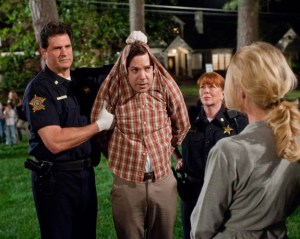
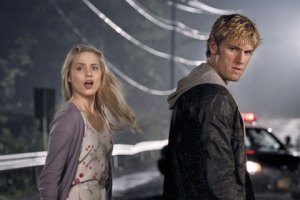
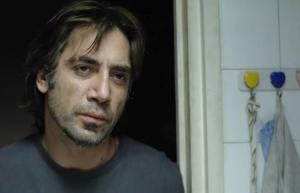
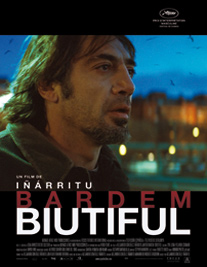


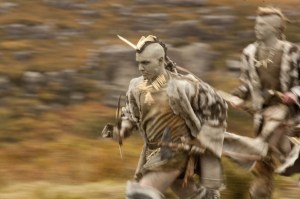
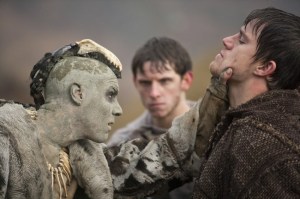
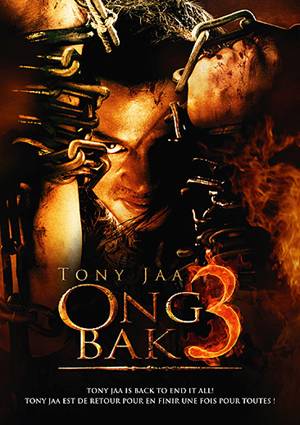
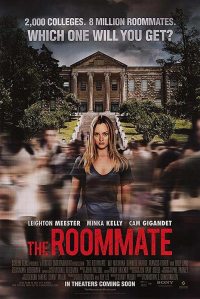

![Modra poster [blue]](https://culturalmining.com/wp-content/uploads/2011/02/modraposter.jpg?w=194&h=300)

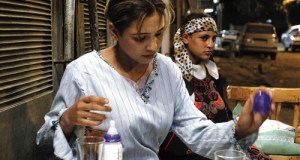


3 comments